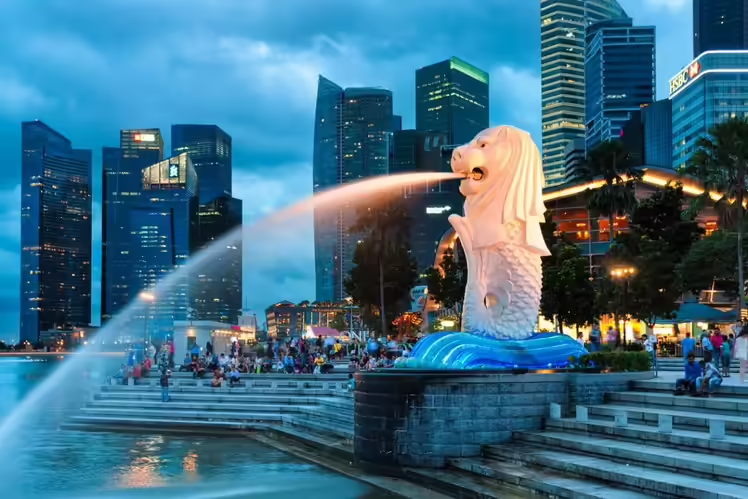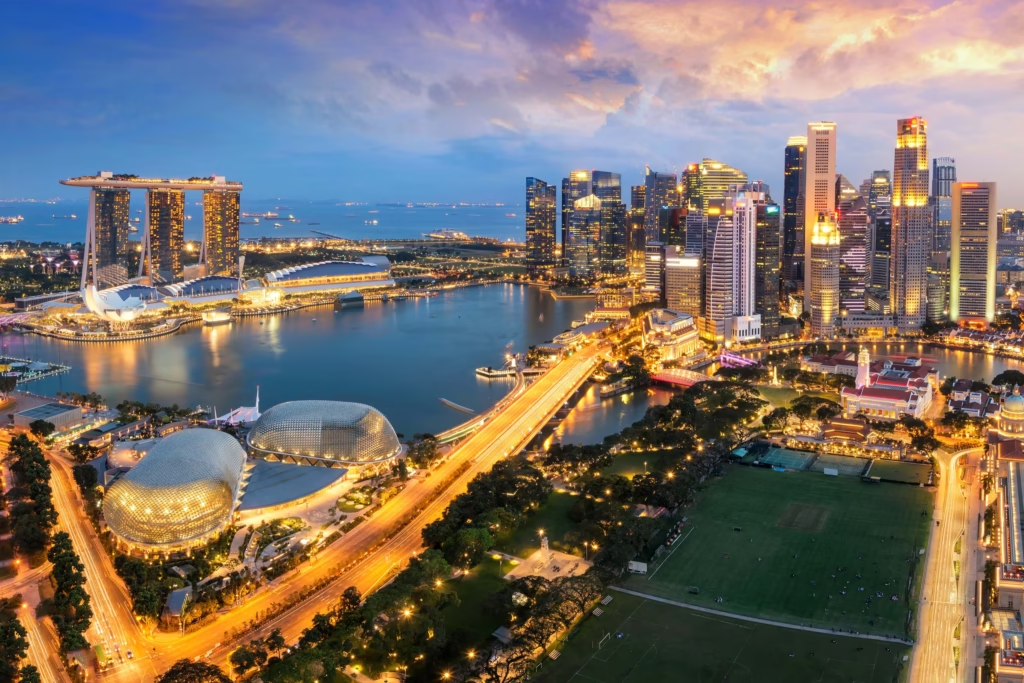Singapore has once again secured its reputation as a global benchmark for safety, ranking as Asia’s safest country in the 2025 Global Peace Index (GPI). Known for its efficient governance, strong law enforcement, and social stability, Singapore continues to outpace its regional neighbors in providing a secure environment for residents and visitors alike.
This recognition not only highlights the city-state’s commitment to peace and order but also strengthens its appeal as a global hub for business, travel, and investment.
What Is the Global Peace Index?

The Global Peace Index (GPI) is an annual ranking system developed by the Institute for Economics and Peace (IEP). It evaluates countries based on 23 qualitative and quantitative indicators across three key domains:
- Ongoing Domestic and International Conflict
- Societal Safety and Security
- Militarization
The index provides a comprehensive assessment of how peaceful a nation is, taking into account factors such as crime rates, political stability, terrorism impact, military spending, and relations with neighboring countries.
Why Singapore Ranks First in Asia
Singapore’s top position is no surprise, considering its long-standing reputation for being one of the world’s safest countries. Several factors contributed to this achievement:
1. Low Crime Rates
The country consistently reports one of the lowest crime rates in the world. Its zero-tolerance policy on drugs, strict law enforcement, and community policing initiatives ensure public safety.
2. Political Stability
Singapore has a stable political environment, with low risks of internal conflict, riots, or large-scale protests. This predictability enhances investor confidence and assures citizens of a secure future.
3. Strong Governance & Rule of Law
Transparent policies, corruption-free governance, and efficient justice systems reinforce law and order. Singapore’s legal framework is widely regarded as among the most effective in Asia.
4. Strategic Defense Without Aggression
While maintaining a strong defense force, Singapore adopts a non-aggressive stance in international relations. Its focus on diplomacy ensures peaceful engagement with global powers and regional neighbors.
5. Community Trust and Social Cohesion
With a multicultural population, Singapore emphasizes inclusivity and harmony. Strong social bonds between communities reduce chances of ethnic or religious conflict.
Comparison with Other Asian Nations
The 2025 GPI shows a mixed picture across Asia:
- Japan and South Korea also ranked high due to low crime and political stability, but their geopolitical tensions with neighbors affected their scores.
- Bhutan, traditionally a high performer in peace indices, remains among the top in South Asia.
- Countries like India, Pakistan, and Myanmar scored lower due to internal conflicts and border disputes.
- China showed improvements but still faces challenges with militarization and regional security concerns.
Against this backdrop, Singapore’s consistency in achieving top rankings reflects its unique governance model and security framework.
Impact on Tourism
Safety is a major deciding factor for international travelers, and Singapore’s GPI ranking is expected to boost its tourism industry. With attractions like Marina Bay Sands, Gardens by the Bay, Sentosa Island, and Orchard Road, tourists are assured of not only world-class experiences but also unparalleled safety.
The Singapore Tourism Board (STB) is likely to leverage this recognition in marketing campaigns, attracting families, solo travelers, and business tourists seeking peace of mind during their stay.
Boost for Foreign Investment
Investors prioritize safety and stability when entering new markets. Singapore’s consistent ranking as Asia’s safest country:
- Reinforces its position as a global financial hub.
- Encourages multinational companies to establish regional headquarters.
- Increases foreign direct investment (FDI) inflows.
Sectors such as finance, technology, healthcare, and education benefit significantly from the perception of a secure and predictable environment.
A Model for Other Nations
Singapore’s success offers valuable lessons for other countries striving for peace and security. Some of the replicable policies include:
- Community-Centric Policing: Building trust between citizens and law enforcement.
- Strict but Fair Law Enforcement: Ensuring accountability without compromising justice.
- Inclusive Social Policies: Promoting unity among diverse ethnic and religious groups.
- Balanced Diplomacy: Maintaining neutrality and fostering peaceful regional relations.
Challenges Ahead
While Singapore enjoys global recognition, it must remain vigilant in addressing evolving challenges:
- Cybersecurity Threats – As a leading digital economy, Singapore faces risks from cybercrime and data breaches.
- Global Geopolitical Shifts – Rising tensions in the Asia-Pacific could indirectly affect its stability.
- Cost of Living Pressures – Social unrest due to economic challenges could threaten internal harmony.
- Climate Change & Environmental Risks – Being a small island nation, Singapore must also prepare for potential security implications of climate change.
Conclusion
Singapore’s top ranking in the 2025 Global Peace Index reaffirms its identity as a nation built on safety, order, and stability. The recognition will boost its global standing, making it more attractive for tourists, investors, and expatriates seeking a secure environment.
As the world grapples with uncertainties, Singapore serves as a model for effective governance, community trust, and long-term peacebuilding. Its achievement is not just a win for the city-state but also an inspiration for other nations in Asia and beyond.

